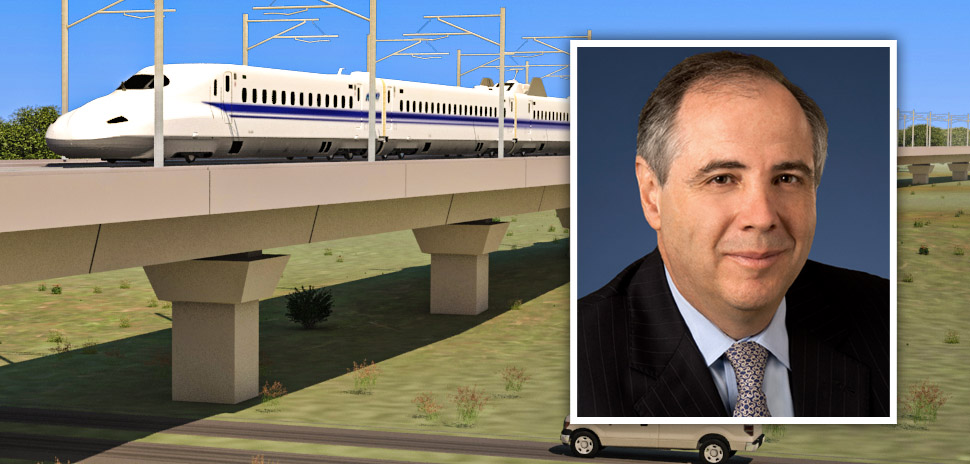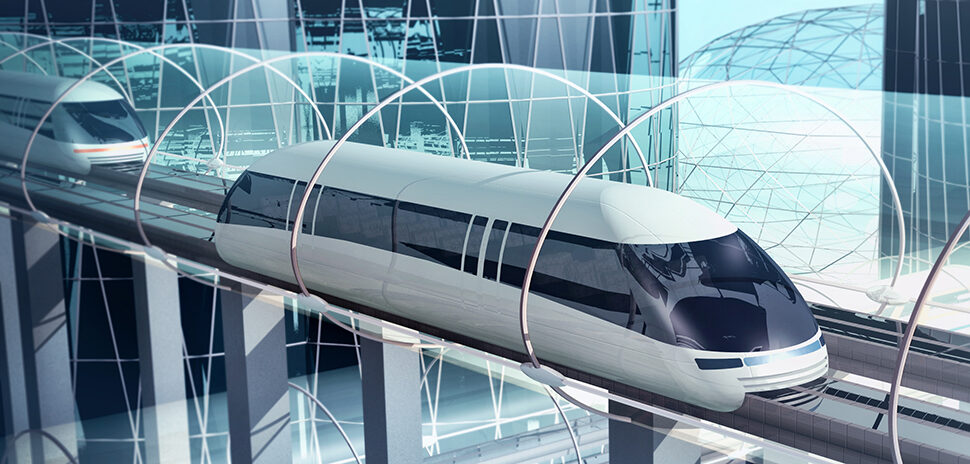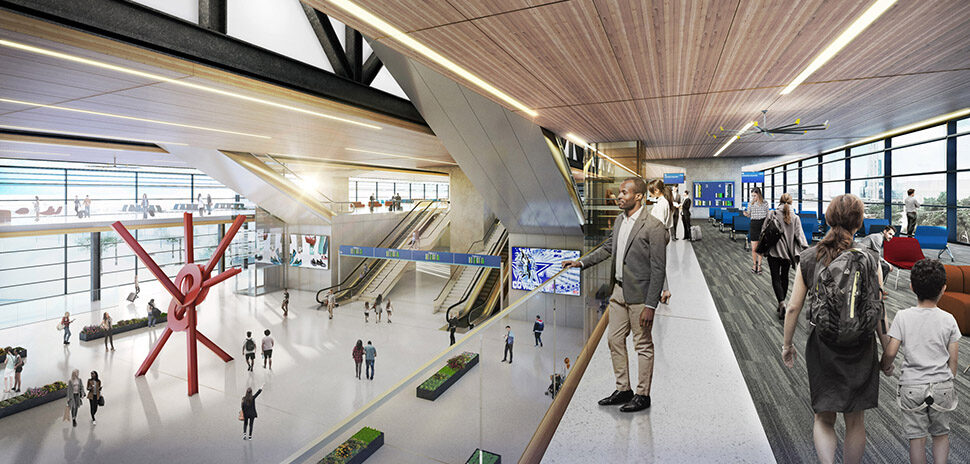Dallas-based rail developer Texas Central has signed a $16 billion contract with Webuild, an Italian industrial group, to lead the civil construction team that will build the proposed 90-minute bullet train between Dallas and Houston.
Webuild will operate in the U.S. market with The Lane Construction Corporation, a 130-year-old engineering and construction leader that has contributed to the development of the country’s roads, highways, and bridges. In 2016, Webuild expanded its U.S. presence by merging with The Lane Construction Corporation.
Webuild is one of the largest civil engineering contractors in the world, and has operated in America since the 1980s. The deal with Texas Central demonstrates that the project, which has been lauded historic, has a number of industry-leading design and build organizations behind it.
“Our goal is to put together a team of the best players in the world from each industry needed to bring this project to life,” Texas Central CEO Carlos Aguilar said in a statement. “The addition of Webuild helps us accomplish that goal.”
Last month, Texas Central signed a $1.6 billion contract with Kiewit Infrastructure South Co. to install the core electrical systems for the high-speed train.
Kiewit will oversee the completion of safety and systems elements, such as traction power and signaling and communications equipment. It’s a critical part of development: Trains are able to ensure the tracks and operators communicate with one another and network operations.
And, in February 2020, Texas Central awarded a contract worth $5.9 billion to the Spanish firm Renfe to develop and operate the rail service. It reportedly was the largest contract ever won by a Spanish state company outside of Spain.
Keeping the train on track
The 240-mile Texas Central Railroad plans to zip passengers at 200 miles per hour between two of Texas’ biggest metros—North Texas and Greater Houston—in roughly 90 minutes. There is a planned intermediate stop on the route in Brazos Valley.
The proposed project will replicate the Japanese Tokaido Shinkansen high-speed rail system operated by the Central Japan Railway Company. In its more than 55 years, the system has transported more than 10 billion passengers. Texas Central said it was drawn to its safety—the system has an “impeccable safety record of zero operational passenger fatalities and zero accidents since first deployed.”
Texas Central gained global buzz in 2019 when it was honored as one of the top infrastructure projects in the world. It was also named one of the best by infrastructure advocacy group CG/LA in its 2019 Strategic 100 Global Infrastructure Report.
But, last year, the timetable for the rail line was uncertain. Texas Central laid off more than two dozen employees in March due to the effects of the COVID-19 pandemic. Officials at the time were working to keep the train on track, with plans expected to move forward in 2020 once the federal government approved permits and the global situation stabilized.
According to Aguilar, the Kiewit contract—and now the deal with Webuild—are the next steps in implementing what would be the first high-speed rail system in the U.S.
His Texas Central team previously told Dallas Innovates that momentum toward construction is building every day, and they expect it to start this year. Currently, engineers, architects, and environmental experts are working on the infrastructure, development of safety practices, design of the trains’ interior, the rider experience, and more.
The train is expected to be up and running by 2026 or 2027. With that, the Texas Central team sees a “super-economy” being created: One that connects people in the fourth and fifth largest U.S. markets who are looking for safe, reliable, green travel options.
Right now, the project is predicted to create around 17,000 direct jobs during its six years of construction, more than 20,000 supply chain jobs, and more than 1,400 direct permanent jobs when the train is fully operational. It will use $7.3 billion of materials and, over the next 25 years, have a cumulative economic impact of $36 billion.
The deal with Webuild
Webuild itself is a new group born last year from Salini Impregilo, a leading global player for 115 years in the construction of large, complex projects. Its focus areas are sustainable mobility, clean hydro energy, clean water, and green buildings.
Currently, Webuild is active in more than 50 countries on five continents, according to a news release.
The team has experience building 8,500 miles of railway and metro infrastructure around the world, including many high-speed train projects in Europe and others, like he expansion of the Panama Canal, the Grand Paris Express, and the Anacostia River and Northeast Boundary tunnels in Washington, D.C.
Per the contract with Texas Central, Webuild will “execute all the heavy construction for the project.” That means designing and building all 236 miles of the alignment, nearly half of it on viaduct. Texas Central said much of the alignment is elevated to reduce impacts as much as possible on landowners and residents of the counties it will traverse.
Webuild will also build all maintenance and industrial buildings, train depots, and facilities.
“We are truly honored to have been chosen by Texas Central, that relies on our worldwide expertise to bring sustainable mobility to the country with the first true ‘end-to-end’ high-speed railway,” Pietro Salini, CEO of the Webuild Group, said in a statement. “Being part of such a challenging project as a leader of the design and construction of the railway is a unique experience that we are extremely proud of. This is a wonderful opportunity to further focus our presence in the US, our biggest single market, together with Lane, the company building first class transport infrastructure for the country for the past 130 years.”
![]()
Get on the list.
Dallas Innovates, every day.
Sign up to keep your eye on what’s new and next in Dallas-Fort Worth, every day.






































































